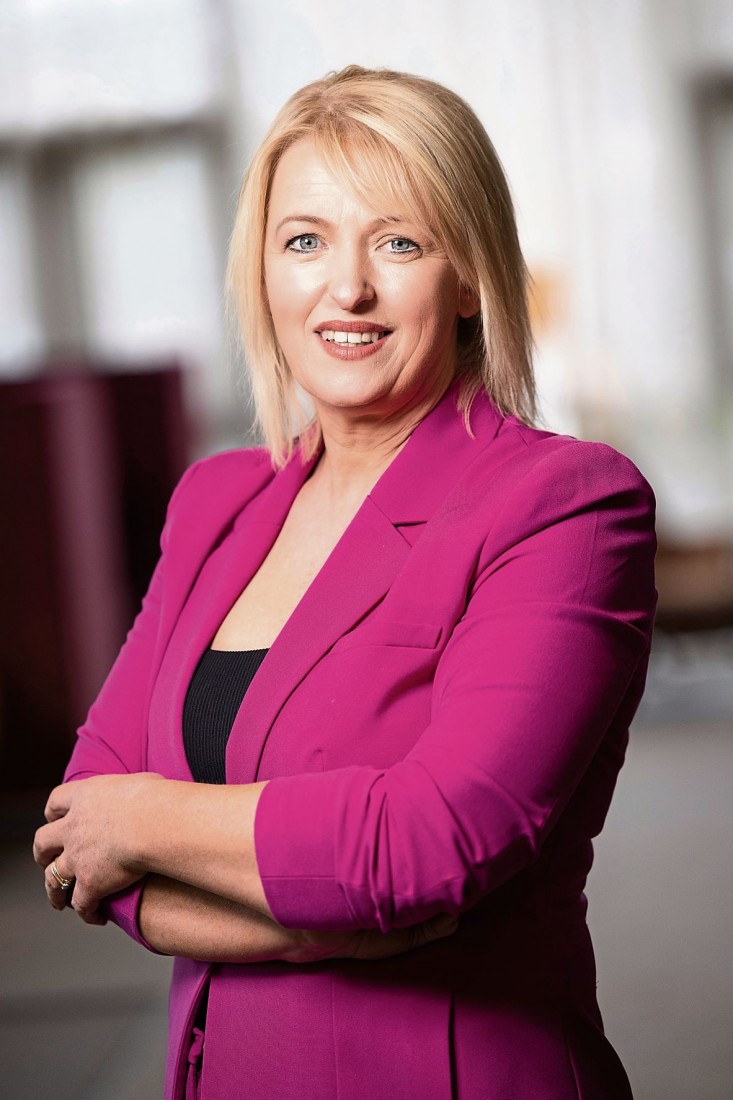BRENDA Hegarty was recently appointed as the first female Head of Enterprise, with the Local Enterprise Office (LEO) in Donegal.
Speaking to the Donegal News she said that she recognises her responsibility and role as a “flag bearer” for females.
“I do really believe if you can see it you can be it, and it’s important for our sisters, our daughters, and everybody to see females in these positions. We make up half of society, so we should be represented equally in society,” she said.
Four years ago Brenda identified that there was a lack of female entrepreneurs, with only 12 per cent of the businesses female led. She saw this as a “lost opportunity”. She initiated the Ambition programme, a pre-accelerator that focuses on early-stage female entrepreneurs.
“It’s all about supporting and encouraging more females into enterprise and also into positions where they can be seen and can impact positively on society,” she added.
In 2022, the number of female led businesses has increased to 22 per cent.
“Obviously we aren’t where we should be but at least the trajectory is moving in a positive way.”
Brenda has a wealth of experience in growing both businesses and communities. My primary degree was in enterprise development, many moons ago, so it’s a nice journey to get to this stage. I’m in a privileged position, I’m helping people to be the entrepreneur but I like to think of myself as an entrepreneur in the public sector,” she laughed.
After finishing university in 1994, Brenda started her career as a development officer in her home town of Pettigo, a village straddling the border.
“For border people the border was never really an issue, we always permeated through it,” she said.
She worked with the Special EU Programmes Body, where she helped with building prosperity in the border region.
During this time she managed large parts of the Peace programme and Interreg, including acting as an investment decision maker in capital projects across the region, such as the Peace Bridge in Derry. She later worked as the Assistant Head of Enterprise for Donegal County Council.
Brenda then took a career break and worked in Cyprus, setting up a covid support scheme to sustain and grow businesses beyond covid.
When she returned, she worked as a Senior Executive Officer with Leitrim County Council; this offered her “great exposure of the local authority, and its mechanisms and operations”.
When the opportunity with the Local Enterprise Office came up and Brenda was delighted to come back to her home county.
Brenda has two main goals: to drive more small businesses in the county and to help those already in business to sustain, grow and create employment. LEO has a wide range of supports available to both.
She is the eleventh in a large family of twelve children. She was the first of her siblings to attend university and the first not to emigrate.
“All ten siblings in front of me emigrated, so it was great for me to have the opportunity to stay,” she said.
Brenda believes that emigration should always be a choice, she recognised how it is sometimes important to move away, but people should be given the opportunities to stay in Ireland if they want.
“If we can create economic opportunity that allows our young people to return and contribute to their local social fabric, and be economically sustained, that would be brilliant.”
She wants to get the message out there that there is a viable career path in setting up your own business at home. This can be “contagious” she explained, if someone who is living abroad sees one of their friends coming home and prospering, they could be inspired to do the same.
“It’s not all about the bright lights, we have a great quality of life in rural Ireland and in Donegal in particular- who wouldn’t want to live here? But it’s all about creating that economic opportunity.”
Our economy is driven by the small business sector, “the people who take risks, who employee themselves but also their neighbours and friends,” she said.
“It’s that creation of economic activity is what sustains rural communities. Without those businesses we wouldn’t have the church, schools, local shops or the people to fill the football teams.”
In the last four years LEO has invested almost €5 million funding over 250 clients and they employ 1,240 people in the county. This year alone they have trained over 1,200 people.
“These businesses are in every community, and across every sector, so we are making a significant economic impact in local communities,” she added.










